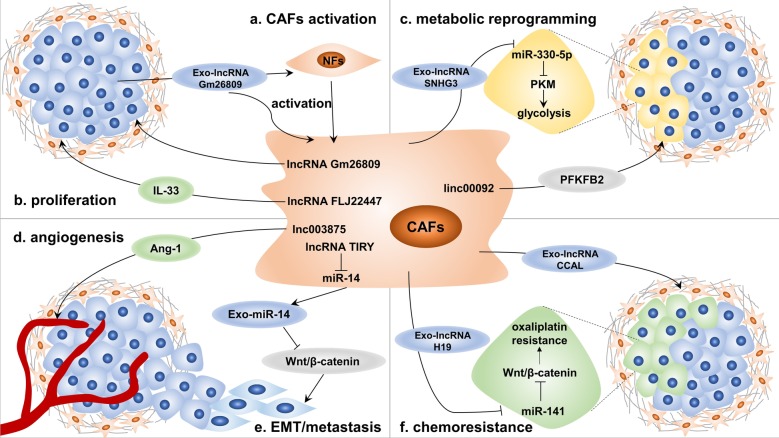Fig. 3.
Long noncoding RNAs (lncRNAs) in cancer-associated fibroblasts (CAFs). LncRNAs mediate the crosstalk between tumor cells and CAFs through a variety of mechanisms: a exosomal lncRNAs from tumor cells are taken up by normal fibroblasts (NFs) to promote their activation into CAFs; b lncRNA dysregulation in CAFs leads to increases in cytokines such as IL-33, which can enhance the proliferation of tumor cells; c both lncRNA dysregulation and exosomal lncRNAs from CAFs target different key metabolic enzymes, such as pyruvate kinase M1/M2 (PKM) and 6-phosphofructo-2-kinase/fructose-2, 6-biphosphatase 2 (PFKFB2), to mediate metabolic reprogramming of tumor cells; d lncRNA dysregulation increases the secretion of proangiogenic factors such as angiopoietin-1 (Ang-1), thus promoting tumor angiogenesis; e lncRNAs act as microRNA (miRNA) sponges to reduce the secretion of exosomal miRNAs, resulting in epithelial-to-mesenchymal transition (EMT) of tumor cells and the acquisition of metastatic ability; and f tumor cells acquire chemoresistance by taking up exosomal lncRNAs

